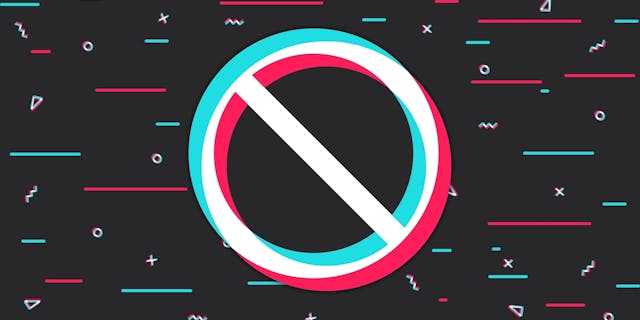TikTok bans are nationalistic policies that do not address security issues, but limit the free movement of information. At their core, federal and state bans of TikTok on government computers and networks — including at schools and colleges — impinge on academic freedom, which the American Association of University Professors asserts “depends upon the free search for truth and its free exposition” for both teaching and research. The current bans prohibit professors from using a tool that helps to find and expose truth. For me, a scholar of popular culture and digital technology, the TikTok ban on government computers in Texas limits my ability to teach classes and conduct research.
In 2021, I walked into my Introduction to Popular Culture class to find a group of students reacting to some videos. I asked what was going on and they alerted me to the milk crate challenge on TikTok. As a geriatric millennial, I don’t see all the latest viral content, so I pulled it up on the class projector. To my amazement, there were dozens of videos of people trying to walk over stacks of milk crates. Some of the falls made MTV’s “Jackass” look like a walk in the park.
As students watched with astonishment, it became the perfect learning moment. We discussed the role these videos play for our collective culture. It gave us the space to discuss the problems of these challenges along with the seductions people have to participate. This linked up perfectly with our lesson for that day: a functionalist approach to popular culture. Functionalism looks at the way particular social practices serve a function. In this case, the function it served was to reflect on the actions of others without anyone feeling directly criticized. Since we don’t know the people performing the milk crate challenge on TikTok, we can talk about how ridiculous it is to climb milk crates without offending anyone.
It also allowed us to explore how the pain these people experience when they fall attracts eyeballs, which equates to revenue for a social media company — in this case TikTok. We can’t help but watch. Social media companies do an excellent job tapping into our dopamine receptors. There is no way to watch just one milk crate video; we continue to watch to see if anyone can make it over the towers. But each new video shows another colossal failure, and these views equal revenue for TikTok.
The TikTok ban also impedes my research. I recently finished writing a book entitled “Digital Feudalism: Creators, Credit, Consumption, and Capitalism.” In this book, I spent countless hours following content creators across social media platforms, especially TikTok. Watching these videos is an important part of how I conducted the research for my book about these creators. Accessing TikTok for me is a necessary tool: no different from a computer, a microscope, a lab, beakers, etc.
At other times, I conduct research on the recording industry. As TikTok has grown in popularity, the way musicians and songwriters create and distribute music has changed. Without being able to view TikTok from my work computer, I have no way to understand the way musicians and songwriters use the platform.
Furthermore, there isn’t a good reason to ban TikTok. There is a fear or feeling that a Chinese company could give valuable information to the Chinese government. First, there hasn’t been any evidence of this occurring so far. But more importantly, the same could be said about any technology company. Most universities and public institutions use either Microsoft or Google email accounts. Microsoft and Google could do anything they want with our emails. Amazon is infamous for giving Ring doorbell information to local authorities when someone commits a crime nearby. There is no outcry among policymakers about the potential for Silicon Valley firms to provide information to the government — maybe there should be, but there isn’t.
Blocking access to TikTok at public universities strikes at the fundamental reasons for academic freedom. Universities are supposed to be sites where the best and brightest minds use information to create new ideas. Banning a website from use blocks the free flow of information.


